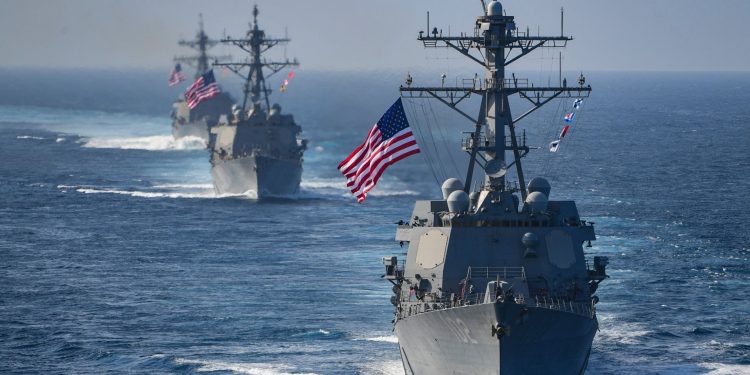The US Navy sent four ships this week to conduct Arctic security operations in the Barents Sea north of Russia for the first time in over three decades, the Pentagon said Monday.
The move came as US officials said rivals like China and Russia were increasingly testing US defense resolve with their own air and sea challenges during the coronavirus pandemic.
The four vessels, along with a British Royal navy ship, conducted operations in the increasingly strategic Arctic region “to assert freedom of navigation and demonstrate seamless integration among allies,” The US Navy said in a statement.
The US ships included three guided missile destroyers and a support ship, which were joined by a British frigate.
The Navy said US surface ships have not operated in the Barents Sea region since the mid-1980s, and said it was necessary to stay familiar with operating conditions there.
“In these challenging times, it is more important than ever that we maintain our steady drumbeat of operations across the European theater, while taking prudent measures to protect the health of our force,” said Vice Admiral Lisa Franchetti.
The Navy said Russia was forwarned of the exercises to avoid conflict.
The Barents operations followed last week’s “freedom of navigation” operations by the US navy in the South China Sea near small islands where China maintains territorial claims not accepted by other countries in the region.
“The Chinese have been a little bit more provocative in that part of the world,” Defense Secretary Mark Esper said Monday.
The Chinese actions are “very aggressive and not consistent with the international rules that we should all be following,” he said.
Esper said the Russian air force has also recently made multiple efforts to probe US airspace in the Artic region and around Alaska.
In Asia, he said, the US military has stepped up its own activities, in the air, sea surface, and below the surface, to demonstrate the US presence and conduct surveillance.
“We want to make sure we maintain the laws of the sea and international rules that have sustained us all very well for decades now,” he said.











